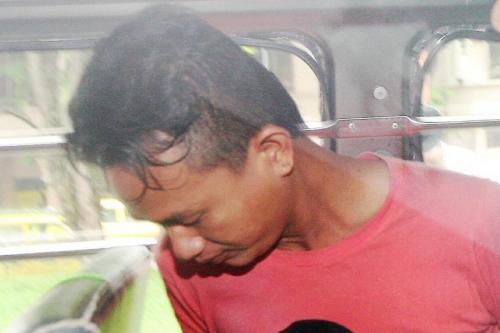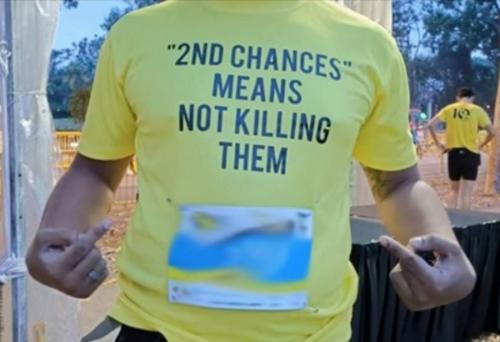situation:The death penalty is provided by several laws (1), but it has been imposed mainly for drug-related offences and murder and as mandatory punishment for murder, drug trafficking and some firearms offences
On 1 September 2017, a new law on terrorism (Suppression of Misuse of Radioactive Material) entered into force which provides the mandatory death sentence for anyone who used radioactive material or nuclear facilities, with the intent to cause death or serious harm to people, property and the environment, or to compel other people or organizations to undertake specific actions. It was approved by the Parliament on 8 May 2017.
Singapore has been one of the most executioner country of the word during the ’90, when executions were around 70 and the population was just more than 3 million. In the last years, the number is below 10.
A turning point in the application o the death penalty, has been the reform presented by the Government to the Parliament in 2012 and entered into force on 1st january 2013.
The reform laid the ground for the establishment of a moratorium on executions in July 2011 till the legal reforms took effect in 2013.
In his presentation of the reform, the Minister of Law, Kasiviswanathan Shanmugam, clarified that the scope of the reforms encompassed drugrelated and homicide offences but not those involving firearms, for which the mandatory death penalty would remain in place.
The 2013 death penalty reforms introduced limited and narrow discretion for judges when sentencing people convicted of non-intentional murder and drug trafficking.
Section 33(B) of the revised Misuse of Drugs Act gaves judges some leeway in sentencing, to either the death penalty or life imprisonment and 15 strokes of the cane, if defendants meet two conditions: 1) they were merely couriers or drug mules and 2) the Prosecutor certifies that they have greatly cooperated with law enforcement officers by tipping them about other drug traffickers. Alternatively, those who have proven that they’re couriers can also be spared if they’re mentally or intellectually disabled.
The Supreme Court of Singapore has further restricted the newly introduced sentencing discretion by, for example, limiting the definition of “courier” in drug trafficking cases to very narrow circumstances.
In a very chomprhensive study by Amnesty International “Cooperate or Die. Singapore’s Flawed Reforms to the Mandatory Death Penalty 2017” (https://www.amnesty.org/download/Documents/ACT5071582017ENGLISH.PDF) it is documented that the 2013 amendments did have some positive impact, with almost half of the people who would have previously been automatically sentenced to death being spared the ultimate punishment. Of the 93 people – including 10 women - who were tried and convicted for capital offences since the reform, 40 resulted in death sentences, while 38 people (41%) were spared the death penalty. Twenty-seven of the 82 men escaped the gallows, while the number is significantly higher for women, 9 out of 10. Eight of those sentenced to death before the 2013 reform, had a commutation to life imprisonment and 3 had the capital sentence confirmed.
From the study, emerges that since the independence of Singapore in 195, clemency has been granted six times.
However, the mandatory death penalty continues to be imposed in a significant number of cases, and the death penalty remaining imposed in murder cases even when discretion is available and for drug offences which do not meet the treshold of the “most serious crime”.
The Government position has been wel expressed by the Minister of Foreign Affairs, Vivian Balakrishnan, at the UN General Assembly in September 2016, saying that: “In our view, capital punishment for drug-related offences and for murder has been a key element in keeping Singapore drug free and keeping Singapore safe. Singapore is probably one of the few countries in the world which has successfully fought this drug problem. And we do not have slums, we do not have ghettos, we do not have no-go zones for the police. The death penalty has deterred major drug syndicates from establishing themselves in Singapore, and we have successfully kept the drug situation under control.”
The argument of the public support for the death penalty should be better analaysed.
On 6 Ocober 2016, the study commissioned by the Singapore government “Findings of Poll on Attitudes towards the Death Penalty” indicated that 80% of the interviewees supported the retention of the death penalty. However, those supporting this punishment showed varied views depending on the offence for which the death penalty would be imposed, with murder attracting 81% of supportive views; using a firearm to commit a serious offence, 78%; arms trafficking, 74%; and drug trafficking, 67%. In this same survey, despite clear evidence to the contrary (see above), 64% believed that there were adequate safeguards in Singapore to ensure that no person was wrongly sentenced to death.
However, a survey carried out by the National University of Singapore and published in December 2016 used a more detailed methodology. Quite significantly, in this survey support for the death penalty dropped to 56% for intentional murder, 43% for drug trafficking and 47% for discharging a firearm, respectively, when the interviewees were asked to think about how they would feel about this punishment if it were not proven to be a greater deterrent than life or long term imprisonment; and to 35%, 28%, 31%, respectively, if it were proven that innocent people have been executed. The findings of this study also show that only 47% of the interviewees supported the mandatory death penalty for intentional murder, 32% for drug trafficking and 36% for firearms offences.46 With evidence from different countries showing that the public support for the death penalty progressively declines years after its abolition,47 these figures should certainly be cause for reflection on how public support for this punishment can change according to the information available, putting a greater onus on the authorities to facilitate and contribute to informed public debates on the issue. So far, however, it has been individual cases that have focussed public attention on the true reality of the death penalty in Singapore.
But, it has been individual cases that have attracted public attention on the reality of the death penalty.
From 24 July 2017 to 24 August 2017, the Ministry of Law opened a public consultation on proposed legislative amendments to the Criminal Procedure Code (CPC) and Evidence Act. The amendments, if adopted, would require anyone wanting to bring an appeal after their conviction and sentence are finalized to seek permission of the court; and would give courts power to dismiss the appeal expeditiously and to consider all matters in one hearing. Only one post-conviction appeal would be allowed and strict time-lines imposed. The allowed grounds for these applications would be restricted to the ones proposed by the Court in Kho Jabing v Public Prosecutor.
Executions are carried out usually on Friday, at dawn. Relatives are generally informed a week previous to the scheduled date. Official statistics on executions were unusually released.
In 2017, 8 people were hanged, all for drug related offences according the Singapore Prison Service (SPS). In 2016, there were 4 executions, two for murder and two for drugs. In 2017 there were 15 new mandatory death sentences, including on one woman, when seven were reported in 2016. Of those, three were imposed for murder and 12 for drug-related offences; six involved foreign nationals.
The War on Drugs
Singapore has some of the toughest anti-drugs laws in the world, and its customs forms warn arriving travellers of “death for drug traffickers” in no uncertain terms.
Anyone aged 18 or over who is convicted of carrying more than 15 grams (0.5 ounce) of heroin, or 30 grams (1.1 ounces) of cocaine, 500 grams (17.6 ounces) of cannabis or 250 grams (8.8 ounces) of methamphetamines faces execution by hanging. Moreover, in 2001 Singapore’s highest court ruled that the act of helping dealers pack heroin into smaller sachets for sale is as bad as selling the drug. So anyone who does the packing faces a death sentence.
On 1st January 2013, a reform of the Misuse of Drugs Act entered into force. The new 33B section gave judges some leeway in sentencing if defendants meet two conditions: 1) they were merely couriers or drug mules and 2) the Public prosecutor releases a certificate that they have greatly cooperated with law enforcement officers by tipping them about other drug traffickers. Alternatively, those who have proven that they’re couriers can also be spared if they’re mentally or intellectually disabled. In that cases, the judge can impose lesser sentences, such as life imprisonment and 15 caning. It makes the process of appeal automatic in cases where the accused has been given the death sentence.
However, according to Harm Reduction Report 2017, while the reforms are a step in the right direction they remain extremely flawed. For example, drug ‘carriers’ can now avoid mandatory death sentences by providing ‘substantive assistance’ to the State prosecutor. Not only is this likely to disproportionately benefit those who are more connected, have access to legal aid and who speak the language fluently, but decisions on who qualifies for this discretionary sentencing are left entirely up to the prosecutors and lack transparency. If a certificate of assistance is not provided by the prosecutor, the court is deprived of any discretionary powers and must sentence the accused to death.
Tha fact is that annual reports (2013/4/5/6) of the Central Narcotics Bureau (CNB) of Singapore, show that the major operations carried out targeted “middle-level traffickers, street-level pushers and drug abusers”.
According to the above mentioned Amnesty International study, of the 66 drug trafficking sentences imposed since 1st January 2013, 34 were mandatory death sentences – including a woman –none discretionary death sentence and 32 discretionary life imprisonments. What is more, the death penalty is imposed more for drug related offences than for murder: 12 the sentences imposed for murder in the same period ( 4 mandatory capital sentences, 2 dicretionary death sentence and 4 to discretionary life imprisonment).
Top secret death
In 2017, Singapore hanged 8 people, all for drug trafficking, according to the Singapore Prison Service (SPS) annual report. In 2016, executions were 4.
Since 2011, the Government has increased transparency because the SPS does systematically provide the number of executions each year in its annual report, but other important information, such as the number of individuals on death row, and their names and background (i.e. gender, nationality and socio/economic background) are not publicly disclosed.
The death penalty on women
Under the Criminal Procedure Code of Singapore, sec. 214, a woman pregnant at the time of sentencing will have any death sentence reduced to a life sentence. In 2017, at least one woman was sentenced to death. Of the 93 people, tried and convicted for capital offences since the reform entered into force on 1st September 2013 till September 2017, 10 were women and 9 of them escaped the gallows.
United Nations
On 27 January 2016, Singapore was reviewed under the UPR of the UN Human Rights Council. In response to questions on the death penalty, the Government said no civilised society glorifies in the taking of lives. Singapore applies capital punishment to deter the most serious crimes such as murder and drug trafficking.
On 19 December 2016, Singapore voted against the Resolution on a Moratorium on the Use of the Death Penalty at the UN General Assembly. At the Third Committee, Singapore introduced an emendment to the text of the Resolution aiming at reaffirming the sovereign right of all countries to develop their own legal systems, including determining appropriate legal penalties, in accordance with their international law obligations which was approved with 76 votes for, 72 against and 26 abstentions.
On 17 December 2018, Singapore voted against.
(1) Under the Armed Forces Act, section 112(1), for murder of other offences under any written law had he been convicted by a civil court for such other offence; under the Arms Offenses Act, sections 4 and 5, for using or attempting to use any weapon, or using or attempting to use any weapon while committing or attempting to commit another offence, or for accomplices that do not prevent the use of weapons;. under the Misuse of Drugs Act, section 33, for trafficking prohibited substances above specified amounts if certain conditions are not met (see section 2 of this document); under Terrorism (Suppression of Bombings) Act, section 3(1) for intentionally and without lawful excuse delivering, placing, discharging or detonating an explosive or other lethal device with intent to cause death or serious bodily injury and death is caused; and under the Penal Code, for murder committed with an intention to kill (section 300(a)), committing or attempting to commit murder while carrying out piracy (s.130(b)), killing of a person while committing genocide (s.130(e)).













